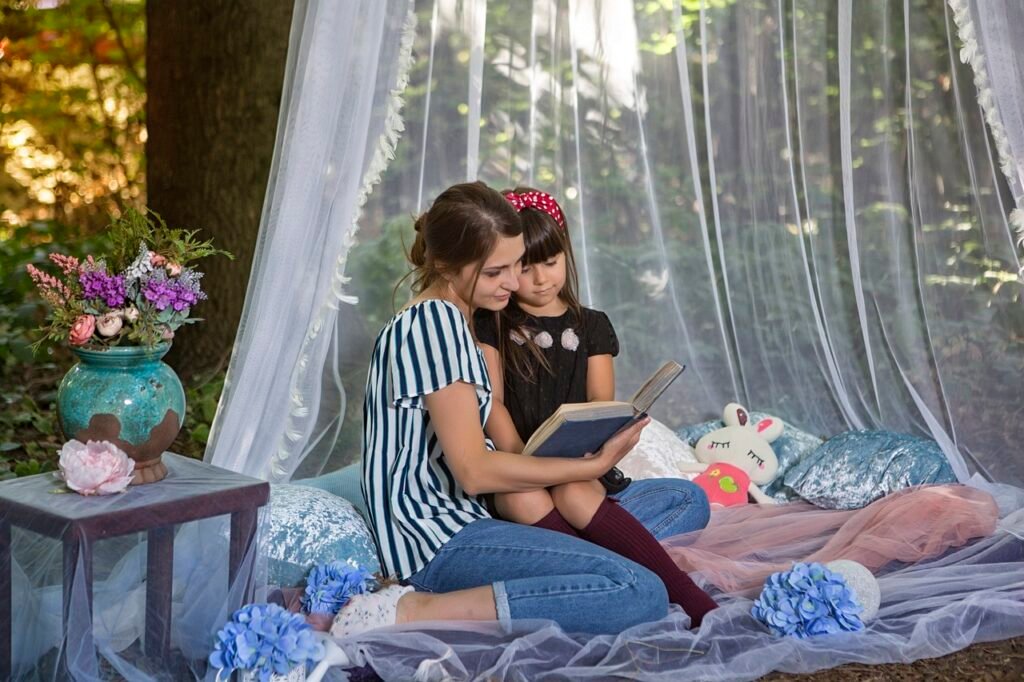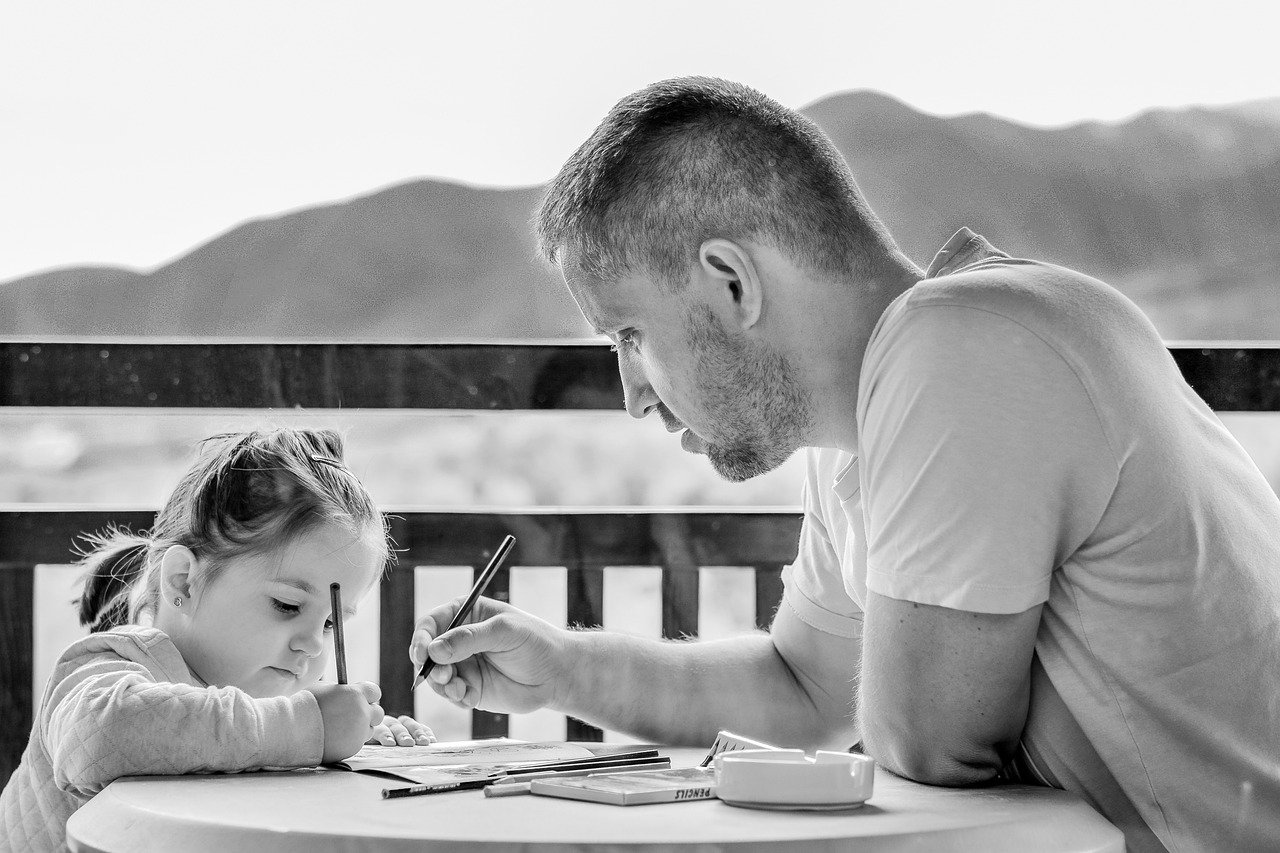In a distant village set against the backdrop of the love-hate desert weather of Rajasthan, a little girl named Chahat is about to embark on a journey that shall profoundly affect her and her parent’s life. This journey initiated with the doting four-year-old essentially traverses the more sublime path of controlling and understanding one’s own emotions, rather than learning to count or elaborate in speech.

Rukmani and Pratap Singh, funds are hardworking parents, mostly concerned-their daughter’s welfare. But Like most parents in rural India, these couple too had their dreams and aspirations for their daughter’s future curtailed by limited resources, financial constraints, and absence of formal education opportunities. With scarce quality education available in the village to them, they couldn’t place the importance of nurturing their child’s emotional development-until one day; several months of the program would radically impact how they parented in the years to come.
It was with the hope of changing the course of Chahat’s and her parents’ lives that the trained worker, Surekha, showed up. She had recently participated in a training workshop organized by Rocket Learning on social-emotional learning (SEL) that Chahat’s parents had never been told about until now. Upon learning of how important social-emotional learning is in developing a child’s future, the daycare teacher named Surekha decided that it could be the answer for Chahat and her parents to flourish.
Social-and-emotional learning centers on developing a child’s ability to recognize, understand, and manage their emotions, as well as relate to others in an empathetic and responsible way. SEL equips kids with the skills to handle stress, control their emotions and actions, make choices, and resolve conflicts constructively—all skills they will require through adulthood.
In truth, studies show that 43 percent of children under the age of five in India are at risk of not reaching full developmental potential, and emotional well-being is an important part of this. When children like Chahat receive support for developing emotional intelligence, they are primed for all forms of lifelong learning, problem-solving, and maintaining healthy relationships.
Surekha saw the possibility of utilizing her new knowledge with Chahat’s family and sat with Rukmani and Pratap Singh at a parent-teacher meeting to explain the tremendous role of emotional intelligence. With her encouragement and support, Chahat’s parents learned some simple but effective techniques for helping their daughter deal with her feelings, which made a world of difference at home.
The Transformation: How SEL Changed Chahat’s Life
Chahat’s behavior, her tantrums, and her emotional outbursts had initially worried her parents since they felt helpless in managing them. They had scolded her for what felt like ages—they had run out of weapons in their armory. Surekha assured them that there were kinder ways to help Chahat with her emotions.
The following are the four key techniques that Surekha taught Chahat’s parents that helped them in managing Chahat’s emotions and in discouraging her tantrums:
Emotion Labeling
Said Surekha, it is an important part of emotional and social learning to help children in labeling what they feel. Instead of telling Chahat to stop crying, Rukmani and Pratap Singh would learn to affirm her feelings. After Chahat had trouble with a broken toy: “I see you’re frustrated. You’ve been trying to fix this for a while, and you’re feeling upset. It’s fine to feel frustrated sometimes.” By empowering Chahat with words to call her emotions, she learned to express her feelings better.
Mindful Observation and Active Listening
Rukmani and Pratap Singh began paying more attention and being observant of Chahat’s behaviors. Verbal or non-verbal, these behaviors include small details that show she could be feeling upset-clenched fists and furrowed brows. When they recognized those signs, they were able to meet her needs and intervene before she could have a tantrum. Active listening became a mainstay with Chahat, where she felt heard and understood, either when expressing her frustration or happiness.
Patience and Empathy
Instead of responding with anger or frustration when their daughter was upset, Chahat’s parents realized that remaining patient and empathetic was an appropriate response. This calmness during storms encouraged Chahat to manage her emotions better. The more empathy Rukmani and Pratap Singh expressed, the more Chahat understood and engaged with their feelings and offered them support when required.
Problem-Solving Together
One of the most empowering concepts within the realm of SEL is the constructive problem-solving ability instilled in children. Surekha suggested that the family include Chahat in decision-making processes, such as brainstorming solutions when a problem arose. For example, if Chahat was upset about something, they would ask her how she thought they could resolve it, giving her a sense of agency and helping her feel more in control of her emotions.
Chahat’s growth in emotions was evident with the passing weeks. Tantrums became less frequent and less intense. She also began saying what was causing her excitement, frustration, or curiosity with greater precision. Likewise, she learned to identify how others felt and act with care and empathy.
The continued positive effects of SEL on young children
And not only behavioral transformation was seen in Chahat-being very much visible was the positive impact of SEL on the family dynamics:
Improvement in Emotional Awareness
Chahat came to know herself better and learned how to express feelings in a good way.
Better Communication
Chahat’s parents used more emphatic communication and active listening skills so their stronger relationship could benefit them all.
Less Tantrums
Chahat developed her emotional management so fewer and less intense emotional outbursts were seen in her.
Stronger Family Bonds
This capability of problem-solving as a team fostered trust and collaboration within the family.
Holistic Development
Chahat’s emotional growth was set as an essential foundation for an efficient now-another tool to sustain Organization to look at problems with resilience and empathy.
Brighter Tomorrows Through SEL
Chahat’s story, while inspired by real-life experiences, proves that the lives of children anywhere in the world can be changed through SEL. The emotional-learning commitment of her parents had a cascading effect on their lives and theirs, enriching all three with awareness, empathy, and emotional resilience.
By Rocket Learning and initiatives in their community, like Surekha’s workshop, Chahat’s family was taken into a greater movement that is realizing change in rural India. SEL is about emotions but also about equipping children with the tools to thrive in all areas of life.
Chahat’s journey is a testament to the fact that emotional well-being paves the road for lifelong success. Our investment in SEL impacts the future of the children and provides a foundation to healthier, resilient communities. It is the very very promise of SEL to nurture the hearts and minds of children to give them the confidence to confront challenges and grow into compassionate, capable adults.

